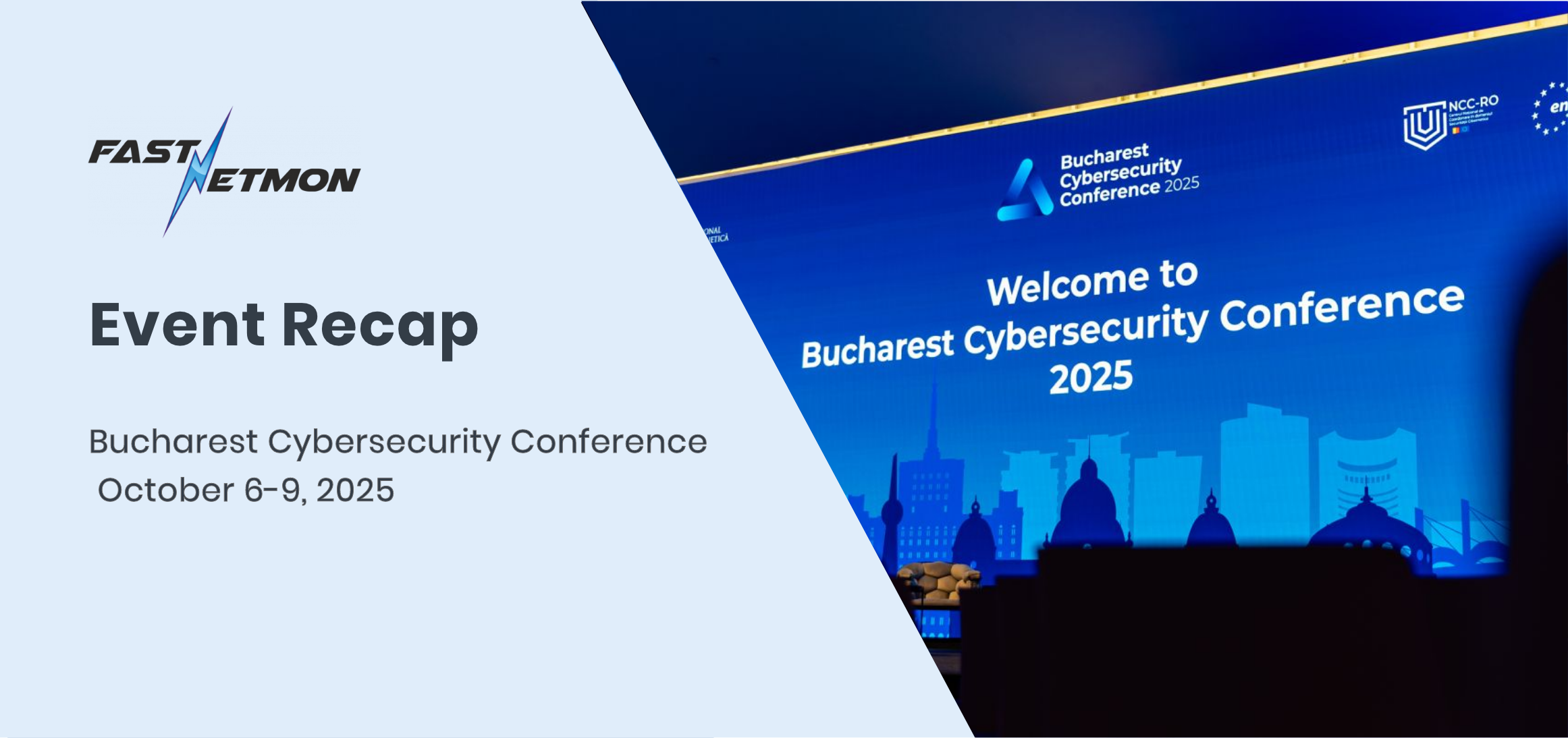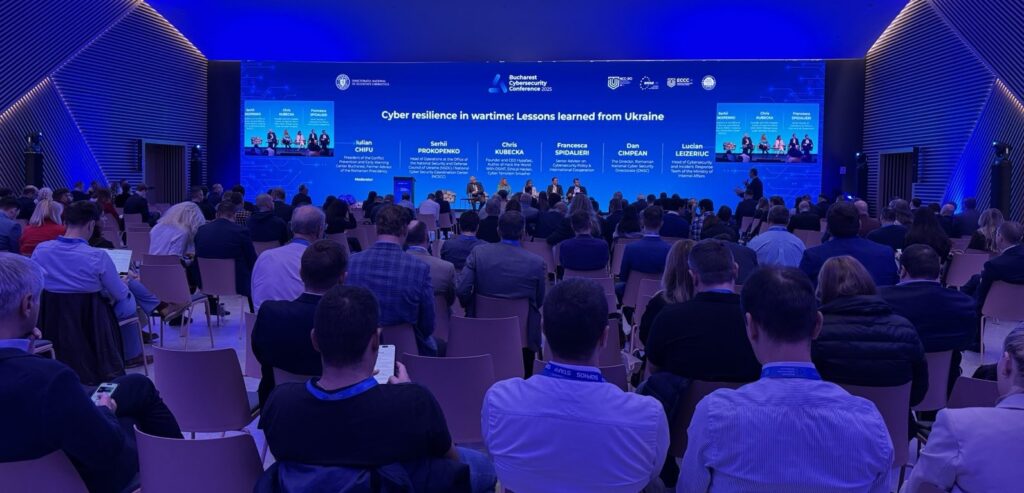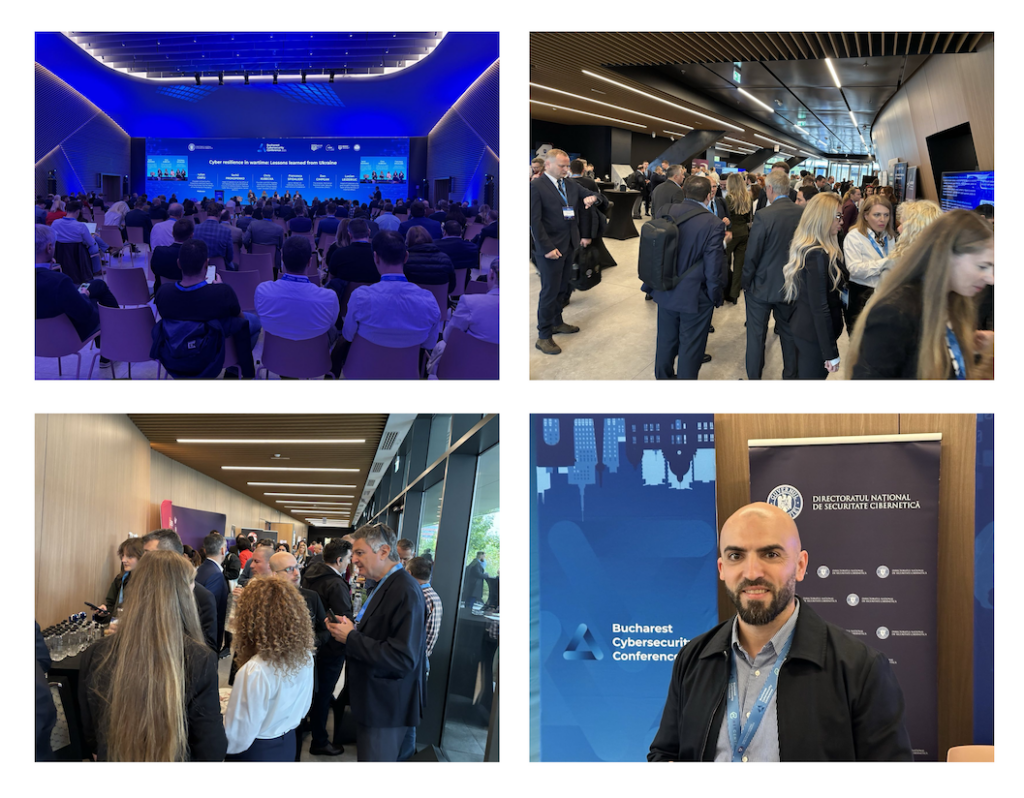
The Bucharest Cybersecurity Conference 2025 (BCC2025) is wrapping up today – and it has been an interesting week!
Hosted by the Romanian National Cyber Security Directorate (DNSC) with support from ENISA, ECCC, and ANSSI, this three-day event brought together policymakers, industry leaders, and technical experts from across Europe. With hundreds of participants and dozens of sessions, BCC2025 once again proved its importance in the regional cybersecurity scene.
A community coming together
The agenda was packed with conversations that matter right now: implementing the EU’s cybersecurity framework in practice, securing critical sectors, and addressing the fast-moving threats posed by AI-driven attacks and quantum computing.
The geopolitical context was also front and centre. From Ukraine to Moldova and Romania’s own elections, it’s clear that cybersecurity has become a core element of resilience and national security — and collaboration across borders is more critical than ever.
Highlights from the sessions

Across the three days, we heard excellent perspectives from policymakers, operators, and researchers. Some of our favourite moments included:
- “Europe’s cybersecurity rules at crossroads” — a lively discussion on how NIS2, the Cyber Resilience Act, and the EU’s broader framework are reshaping operational requirements for both public and private sector operators. The focus was on practical enforcement, supply chain trust, and the need for continuous visibility across complex infrastructures.
- “Cyber resilience in wartime: lessons learned from Ukraine” — a powerful panel showing how national-scale cyber defence adapts under extreme conditions. The discussion highlighted the importance of distributed monitoring and fast information sharing to maintain uptime and stability even under sustained attack.
- “When the telecom network breaks, everything stops” — a technical deep dive into critical dependencies between telecom infrastructure and other essential services. Speakers stressed the importance of network observability and early anomaly detection to prevent cascading failures.
- “Powering resilience: securing Europe’s energy sector” — an insightful look into how grid operators and service providers are improving visibility and response automation across distributed networks to defend against increasingly sophisticated, cross-border threats.
Beyond the official sessions, the side events added real depth to the programme — with workshops, roundtables, and the EU Impact Day giving space for more specialised discussions on NIS2, resilience, and the market impact of European cybersecurity initiatives.

What we’re taking home from BCC2025
For FastNetMon, BCC2025 was about more than just listening to talks. Events like this are an opportunity to connect with decision makers, share lessons learned from the front lines, and build a stronger common approach to network visibility and DDoS defence.
DDoS attacks continue to grow in scale and sophistication, and hybrid threats are increasingly used as part of geopolitical strategies. The ability to see what’s happening on the network in real time, and to react fast, is no longer optional — it’s essential for resilience.
Looking ahead
We left Bucharest optimistic about the level of collaboration across the European cybersecurity community.
A big thank you to the organisers and to everyone who took the time to meet with us during the event. If we didn’t get a chance to connect in person, we’d be glad to continue the conversation — drop us a message anytime.
We’re already looking forward to next year!
About FastNetMon
FastNetMon is a leading solution for network security, offering advanced DDoS detection and mitigation. With real-time analytics and rapid response capabilities, FastNetMon helps